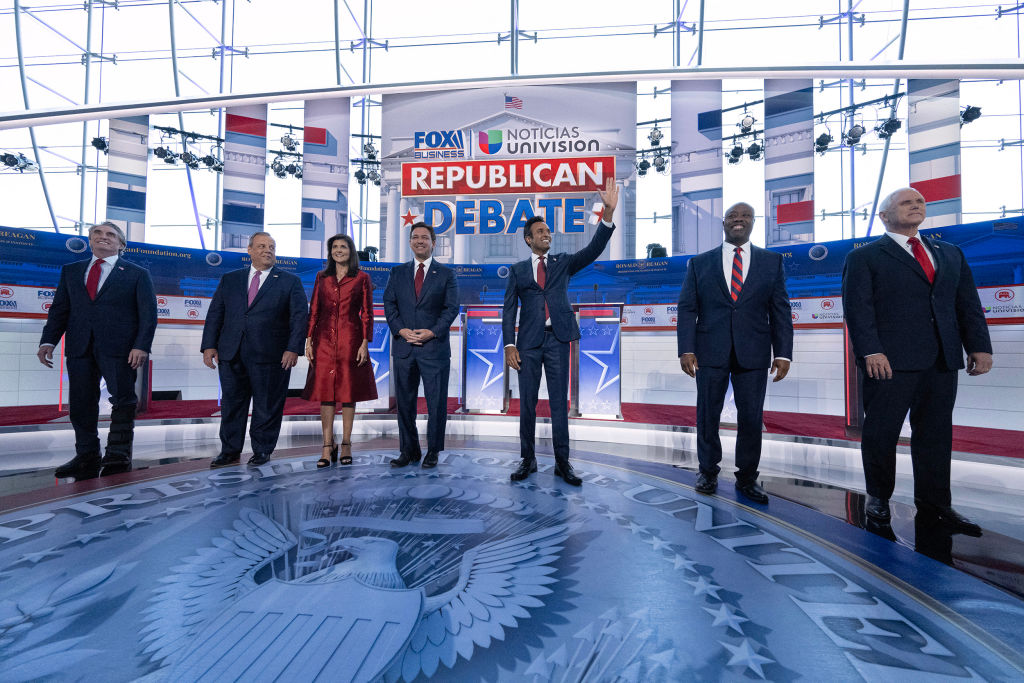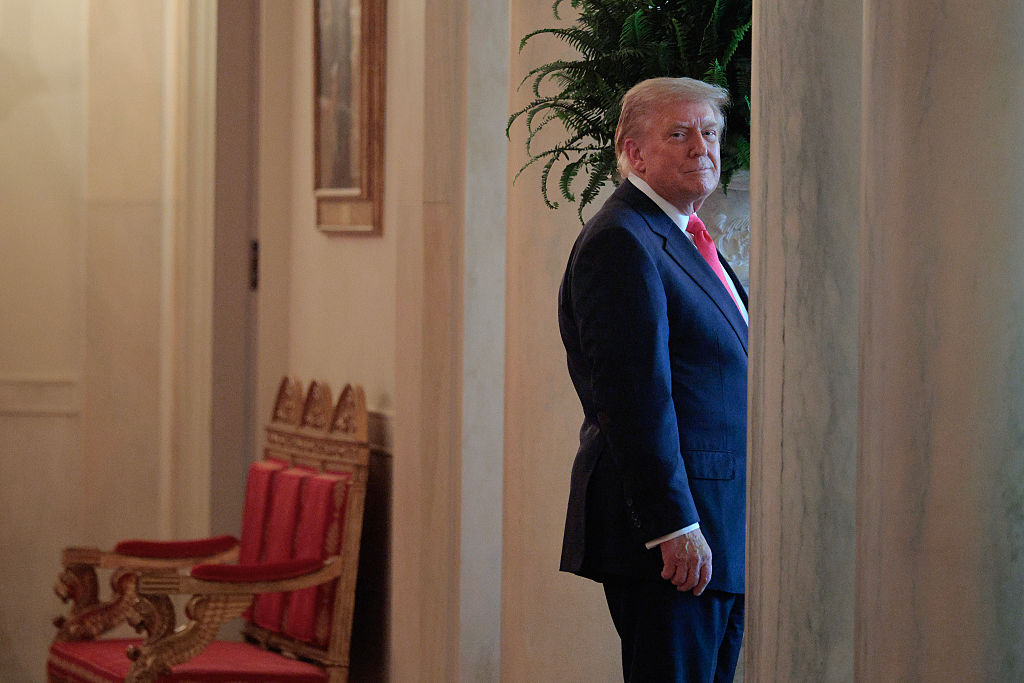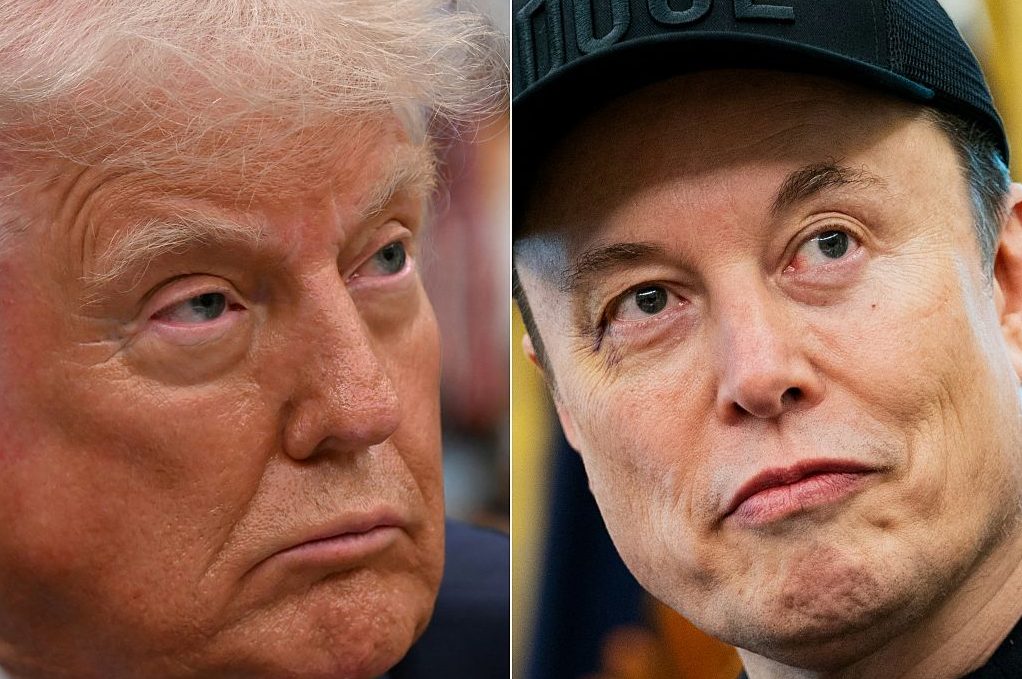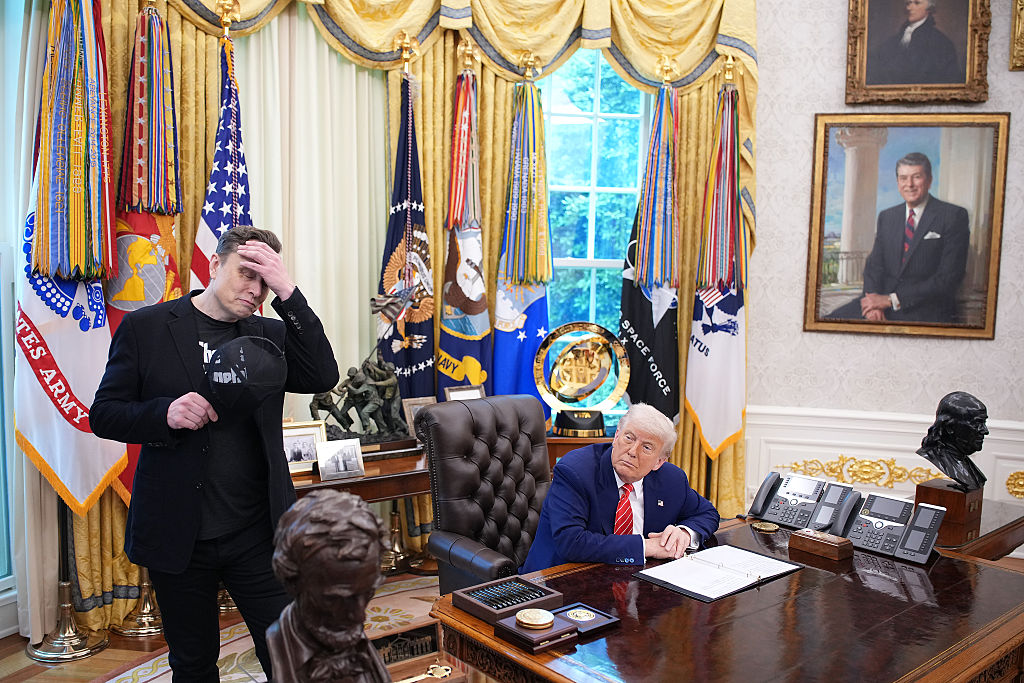The worst job in America on Wednesday was trying to moderate the second Republican debate. With seven candidates on stage struggling for airtime, moderators Dana Perino, Stuart Varney and Ilia Calderón did a creditable job under impossible conditions. They asked the right questions, but couldn’t stop the candidates from talking over each other, or returning to previous questions which they wanted to answer but hadn’t been asked. The moderators’ job was like being the referee with seven boxers in the ring.
None of the fighters won, and none failed. They all put forward their best arguments in the sliver of time they had for each question. Unfortunately for voters trying to decide among them, that sliver wasn’t enough to say more than canned slogans. There were simply too many voices on stage to give each of them more time. With most polling in single digits, they knew this might be their last chance to make their case before being tossed out of the ring.
Even the strongest candidates didn’t have time to flesh out important positions on major policy questions, to say much more than “I did it right in my home state” and “Joe Biden, bad.”
The stringent time limits helped the most vapid among them, Vivek Ramaswamy, who could toss out unworkable ideas like confetti, knowing other candidates wouldn’t have time to expose their emptiness and the moderators wouldn’t have time to press for details. He’s slick enough to convince some voters and outrageous enough to convince others. But he shouldn’t be on the same stage as serious candidates with a genuine understanding of difficult policy issues and the background to actually implement solutions.
The candidate hurt most by the yelling and time limits was North Dakota governor Doug Burgum, whose success as governor follows his long, successful career in high technology business. He was advancing a Reagan agenda at the Reagan Library and doing it thoughtfully, but he hasn’t been able to break free from the pack. The debate didn’t change that.
Tim Scott had the most moving comments of the evening. A black man who rose from grinding poverty to become US senator from the state where the Civil War began, he seized the opportunity to criticize Florida’s revised high-school curriculum. The history course condemns slavery, obviously, but adds one sentence that some slaves acquired skills that benefited them. Scott wasn’t having it. Governor DeSantis responded that the sentence had been written by esteemed black scholars and that his work on school choice was helping all Floridians.
Scott’s real success came when he moved beyond that point to offer a fundamental criticism of the Democrats’ Great Society programs and their impact on black families. To quote him: “Black families survived slavery! We survived poll taxes and literacy tests. We survived discrimination being woven into the laws of our country. What was hard to survive was Johnson’s Great Society, where they decided to put money- where they decided to take the Black father out of the household to get a check in the mail.”
The New Republic immediately condemned him from the left, calling his comment “deplorable.” As they saw it, he was really saying modern welfare programs were worse than slavery. He didn’t say that. In fact, it takes a genuinely mendacious and malicious misreading of his comments to reach that conclusion. Still, the magazine’s comments are instructive for two reasons. They show both how deeply committed the left is to these big-state programs and how it is nearly impossible to debate these issues seriously without being slimed.
When the hubbub died down and the TV lights were dimmed, the debate had changed nothing. Ron DeSantis and Nikki Haley acquitted themselves well, buttressed their policy advocacy with data and remained the only viable potential challengers to Donald Trump. Same as before the debate.
For either of them to have a real shot, though, they will have to catch fire and Trump will have to fade, both in the early states and the national polls. Neither has happened. In fact, Trump’s lead remains as strong as ever. No single challenger has broken free from the pack. And the crowded debate format makes it almost impossible for anyone to rise above the field.
To succeed, a single candidate, likely DeSantis or Haley, must vanquish the other contenders before focusing on Trump. The longer it takes for one of them to become Trump’s principal competitor, the stronger the former president’s position. He stays above their quarrels as they attack each other and President Biden.
Poll after poll shows American voters are unhappy with the prospect of replaying the 2020 general election. The debate at the Reagan Library did nothing to change that prospect.

























